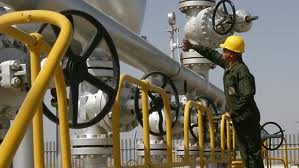 Iranian President Hassan Rouhani has declared his country open for investment, telling oil and gas executives in Davos, Switzerland, that�Iran�would have a new and improved contract for energy-sector investors ready by September. Iran�s outreach to foreign investors should be greeted with skepticism, but this is a development worth watching.
Iranian President Hassan Rouhani has declared his country open for investment, telling oil and gas executives in Davos, Switzerland, that�Iran�would have a new and improved contract for energy-sector investors ready by September. Iran�s outreach to foreign investors should be greeted with skepticism, but this is a development worth watching.
First, the grounds for caution: There has been an�unseemly rush�by European governments and companies to send trade delegations to Iran since an interim deal to limit Iran�s nuclear-fuel program took effect last week. The hope of restoring 19 billion euros of annual trade between Iran and the European Union, lost since sanctions took effect, looms large.
This eagerness to cash in threatens the prospects for a permanent nuclear deal by easing the pressure on Iran to make concessions. Thanks to�Russia, this may already be happening: A deal to buy 500,000 barrels of Iranian oil per day is�reportedly�in the works. It would give Iran about $1.5 billion per month more in oil revenues than the interim deal envisages. The U.S. and its European allies should do what they can to block it.
Despite this, the new contract that Rouhani described is interesting.
Even before the most recent sanctions began to bite, the corruption and paranoia of the ruling regime were crippling Iran�s economy. The government was unwilling to create the environment that investors need to flourish. For that to change, Iran�s regime must start changing, too.
Sanctions aside, Iran�s capacity to exploit its oil reserves is far smaller than it should be. Iran has the largest natural-gas reserves in the world, yet it remains a net importer. Foreign oil companies were offered so-called buyback contracts, under which they bear the full risk of cost overruns and are given little incentive to adopt the best technologies. In the gas sector, the government distorts the market with massive domestic subsidies. Legal uncertainty and political risk deter every kind of private investment. (A Turkish-Austrian company won a�$193 million contract�to operate Tehran�s airport and build a new terminal; tanks from the Islamic Revolutionary Guard Corps shut it down when the first flight landed in 2004.)
If Rouhani really wants to open his country to the global economy, he�ll have to defeat hard-line conservatives and supplant the vested business interests of the Revolutionary Guard. It�s a tall order, to put it mildly. The new oil contracts -- which could be seen as relinquishing some of the regime�s control -- were supposed to have been unveiled in April. That�s been pushed back, a sign of resistance behind the scenes.
Iran must be held accountable for its nuclear program. That comes first. But if a deal can be struck, efforts by Rouhani to create a business environment that�s attractive to foreign investors and repellent to the regime�s conservatives deserve to be welcomed. His remarks in Davos might be a sign of movement, or they might mean nothing. The burden of proof rests with Iran.
By Bloomberg�
The Iran Project is not responsible for the content of quoted articles.

 QR code
QR code